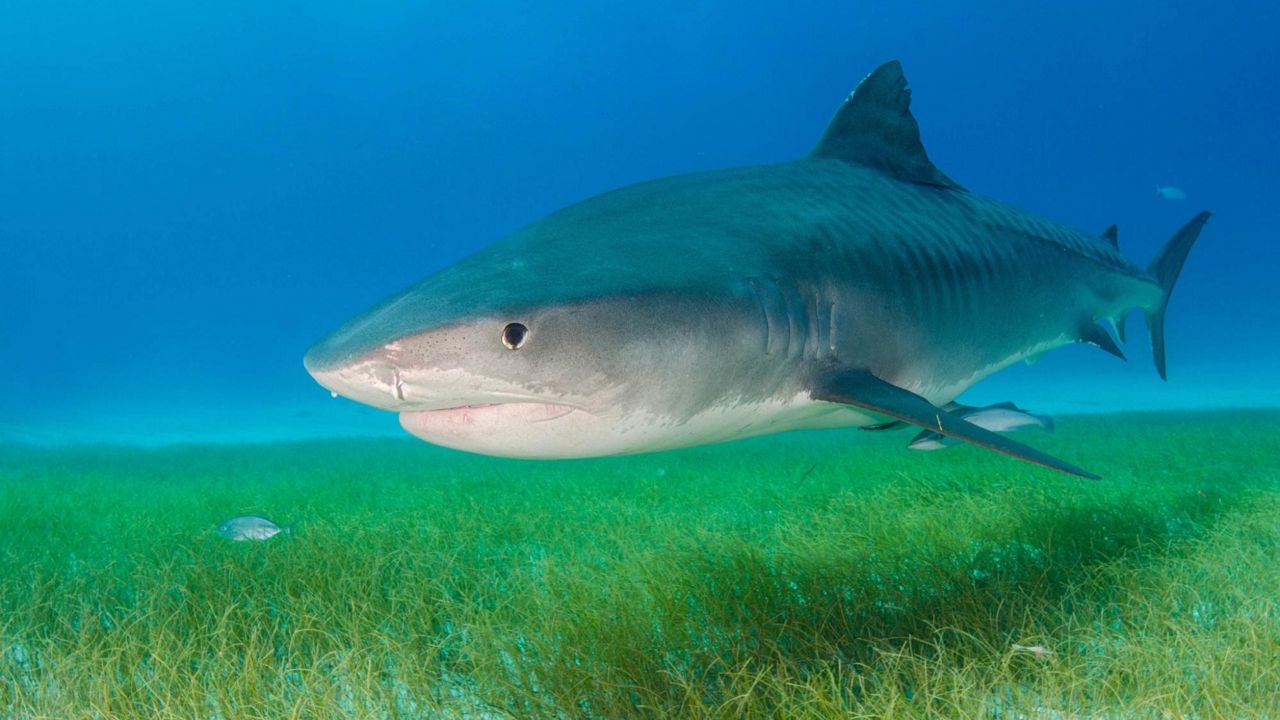Sharks play an outsize role in healthy oceans but need to be protected from overfishing, climate change, habitat loss, energy mining, shipping activities and other threats, according to new research at the University of Hawaii.
A new study led by Florida International University in partnership with the University of Hawaii at Manoa’s Hawaii Institute of Marine Biology and others found that the largest sharks of many of the biggest shark species, including tiger sharks and great whites, help maintain ecosystem balance through their eating habits and a daunting presence that scares away prey that could over-consume seagrass and other important plant life.
The study, “Ecological roles and importance of sharks in the Anthropocene Ocean,” was published Friday in the journal Science.
“New tools and technologies have enabled us to make huge strides in recent years in understanding the diverse—and critically important—roles that sharks play in the world’s ocean ecosystems,” said co-author Elizabeth Madin, an HIMB associate professor. “It’s clear now that protecting shark populations is a wise investment in ocean health, and one which ultimately benefits people and the planet.”
The researchers found that reef sharks not only maintain balance within the food web, they also feed in offshore waters and bring nutrients back to the reef. Others redistribute nutrients that are used at the base of the food chain. Sharks can also serve as food for other species or even serve as scratching posts for other fish to remove parasites.
Such functions underscore the potential impact of declining shark numbers. According to the researchers, oceanic species of sharks have dropped by 71% over the last 50 years. The top five reef shark species have declined in population by 63%.
“It’s time to have a conversation about everything sharks are doing to maintain ocean health so we can better prioritize conservation efforts and have the biggest impact,” said Simon Dedman, researcher at Florida International University and lead author of the study.
The researchers raise concern over the ongoing increase in global temperatures, which has led some sharks to move to new, more hospitable waters. Sharks have also been negatively impacted increased human contact due to so-called blue economy industries like aquaculture and tourism.
“National and international policy must focus on actions that rebuild populations and restore sharksʻ functional roles,” said Mike Heithaus, study co-author and FIU marine ecologist. “That requires action to increase both spatial measures like Marine Protected Areas and fisheries management measures like catch/size limits and gear limitations. If people want healthy oceans, we need healthy shark populations.”









